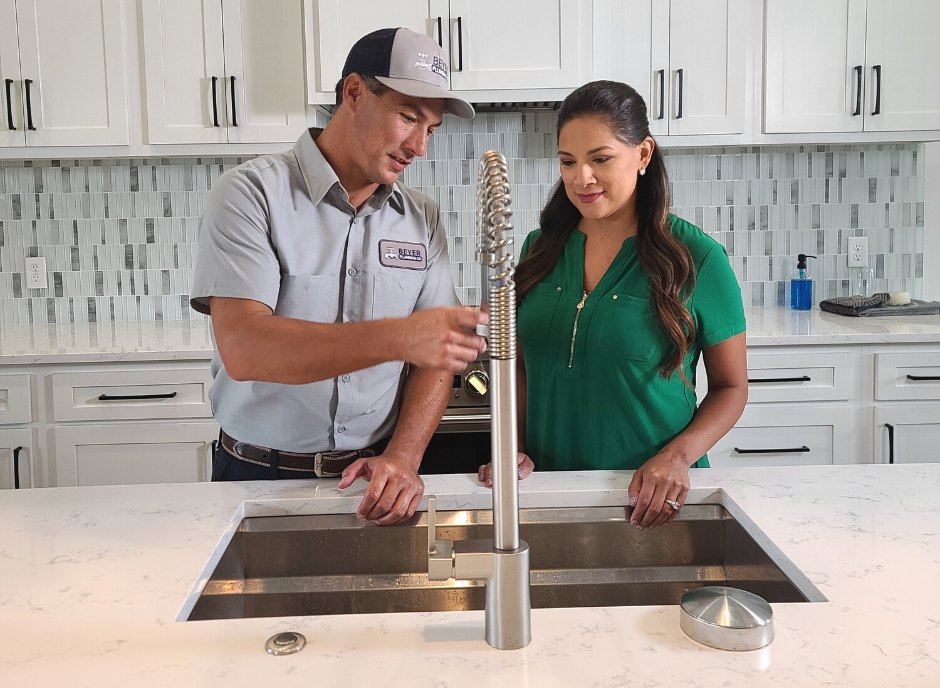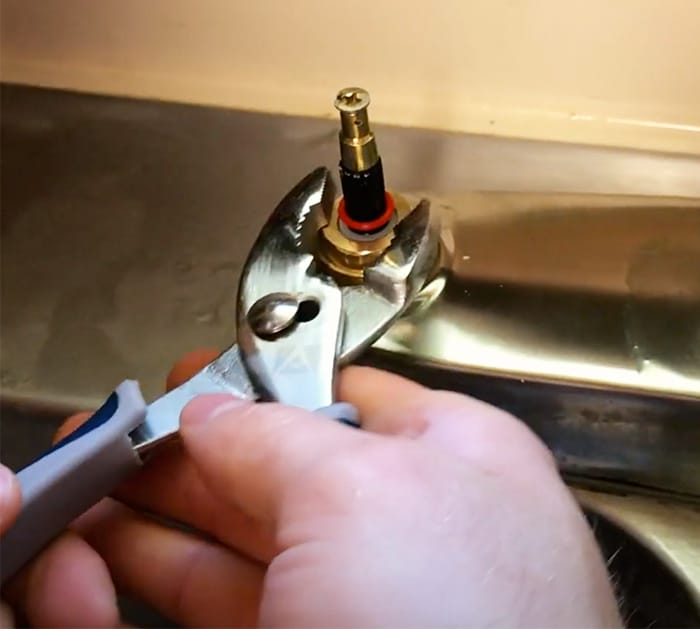Each person has got their own individual theory on the subject of Water Dripping from Faucet: Why and How to Fix.

Dripping faucets might seem like a small trouble, however their effect goes beyond just the annoyance of the sound. From drainage to sustaining unneeded monetary costs and health threats, overlooking a dripping faucet can bring about different repercussions. In this article, we'll explore why it's important to resolve this typical home issue without delay and successfully.
Waste of Water
Ecological Effect
Dripping taps contribute considerably to water wastage. According to the Epa (EPA), a solitary faucet trickling at one drip per secondly can squander greater than 3,000 gallons of water annually. This not just stress water sources however also influences environments and wildlife based on them.
Step-by-Step Guide to Dealing With a Dripping Faucet
Tools Called for
Before trying to fix a trickling faucet, collect the necessary devices, including a flexible wrench, screwdrivers, replacement components (such as washers or cartridges), and plumber's tape.
Typical Faucet Issues and Their Solutions
Identify the kind of tap and the particular concern causing the drip. Usual problems consist of damaged washers, rusty valve seats, or defective O-rings. Describe producer instructions or on the internet tutorials for detailed assistance on fixings.
Financial Costs
Boosted Water Costs
Beyond the ecological influence, dripping faucets can pump up water costs considerably. The built up waste with time translates into greater energy expenses, which could have been avoided with prompt fixings.
Potential Residential Property Damage
In addition, long term dripping can result in damage to components and surface areas bordering the tap. Water accumulation can cause staining, corrosion, and even architectural issues if left ignored, leading to extra repair service prices.
Wellness Concerns
Mold and Mildew Growth
The consistent presence of dampness from a dripping faucet produces an ideal environment for mold and mildew and mold growth. These fungis not just jeopardize interior air top quality however likewise present wellness dangers, specifically for people with respiratory system conditions or allergies.
Waterborne Diseases
Stagnant water in trickling faucets can become a breeding place for microorganisms and various other pathogens, increasing the threat of waterborne conditions. Pollutants such as Legionella germs flourish in stationary water, possibly causing severe health problems when consumed or inhaled.
Do it yourself vs. Professional Repair
Pros and Cons of Do It Yourself Fixing
While some may attempt to deal with a trickling faucet themselves, do it yourself fixings include their own collection of difficulties. Without appropriate knowledge and devices, DIY efforts can worsen the issue or bring about insufficient repairs, lengthening the issue.
Benefits of Employing a Professional Plumber
Working with a professional plumber makes sure that the underlying reason for the trickling faucet is resolved efficiently. Plumbings have the knowledge and equipment to identify and fix faucet concerns efficiently, saving time and lessening the risk of additional damages.
Environmental Obligation
Individual Contribution to Preservation
Taking responsibility for dealing with dripping taps straightens with broader efforts toward water preservation and ecological sustainability. Every individual's actions jointly make a significant effect on maintaining precious resources.
Lasting Living Practices
By focusing on prompt repair work and adopting water-saving routines, people add to sustainable living practices that benefit both existing and future generations.
Safety nets
Regular Upkeep Tips
To stop trickling taps, perform routine maintenance such as cleaning aerators, examining for leakages, and changing damaged components without delay. Additionally, think about setting up water-saving gadgets or updating to extra reliable components.
Relevance of Prompt Services
Addressing dripping faucets as soon as they're noticed avoids further water waste and prospective damage, ultimately saving both water and money in the long run.
Influence On Residential Or Commercial Property Value
Perception of Well-Maintained Residential Or Commercial Property
Maintaining a home in good condition, including attending to maintenance issues like dripping taps, boosts its viewed value and value among possible customers or occupants.
Influence on Resale Value
Properties with well-maintained plumbing components, consisting of faucets, command higher resale worths in the realty market. Dealing with dripping faucets can add to a favorable perception during building examinations and settlements.
Conclusion
Resolving a leaking faucet surpasses mere ease; it's a necessary step towards conserving water, decreasing economic prices, and securing health and residential or commercial property. Whether via DIY repair work or specialist aid, taking action to repair dripping faucets is a tiny yet impactful means to advertise accountable stewardship of sources and add to a much healthier, a lot more lasting future.
How to Fix a Leaky Faucet: Step-by-Step Repair Guide
A leaky faucet may seem like a simple annoyance, but if it's not fixed promptly, that leak could cost hundreds to potentially thousands. From water damage to mold, mildew, and high water bills, even a tiny leak can be catastrophic if left unattended. Damage like this can even affect the overall value of your home, so it's important to take the right approach for leaky faucet repair. You may need the help of a plumber in some cases, but we've got a few tips you can try on how to fix a leaky faucet before calling the pros.
Four Faucet Types
When you're learning how to fix a leaky faucet, the first step is knowing what kind of faucet you're working with! There are four common types.
Cartridge Faucets
Cartridge faucets come in one- or two-handled varieties. In one-handled cartridge faucets, hot and cold water combines in a single cartridge. In the two-handled versions, hot and cold water are controlled separately and mixed in the faucet.
Ball Faucets
Ball faucets have a single lever you push up and down to adjust the pressure and rotate to change the temperature. A slotted metal ball controls the amount of water allowed into the spout.
Compression Washer Faucets
They're the oldest type of faucet, but they're still used in many homes — especially older ones. Compression faucets have two separate handles that, when turned, raise or lower the washer that seals a water valve. This valve stops water from flowing through the faucet when it is turned off.
Disc Faucets
Disc faucets rarely need to be repaired due to their maintenance-free design. The water flow is controlled by two discs — the upper one raises and lowers against a fixed lower disc, creating a watertight seal. If your disc faucet starts leaking, you may need to replace the seals or clean residue buildup from the inlets.
Fixing a Leaky Faucet
Step 1: Turn Off the Water
Whether you're learning how to fix a leaky bathtub faucet or how to fix a leaky kitchen faucet, always turn off the water supply to your working area when you're fixing a leak. The last thing you want is a flood added to your list of things to fix.
Look for the shutoff valves below your sink or around the tub and turn them clockwise to stop the water flow. If your faucet doesn't have shutoff valves, you may need to turn off the water for the whole house. Check to make sure it's off by turning the faucet on. If nothing comes out, you're ready to start the repair.
Step 2: Take Apart the Faucet
How you disassemble your faucet depends on the type of fixture you have. You can use a flathead screwdriver to remove the caps on top of the handle or handles for cartridge and compression faucets. Inside, you should see handle screws. Unscrew these with a screwdriver to remove the handle.
Disc- and ball-style faucets will typically have an inlet screw near the handle, and removing that will reveal the interior of the faucet.
Detach the Valve Stem
For cartridge- and compression-style faucets, you'll see the inner valve stem or cartridge once you remove the faucet handles. If you have a compression faucet, unscrew the brass valve stem. If you have a cartridge faucet, pull out the cartridge. If your cartridge has been in place for a while, it may require some tools or extra force to remove it due to mineral deposits.
Examine and Replace Parts
Once you've removed the parts, check them out to confirm what needs to be replaced. You may see corroded rubber washers, O-rings, stems, or cartridges. On a ball-style faucet, check the seats and springs for damage.
If you need to repair a leaky disc faucet, check the inlet and seals on the lower disc.
Once you determine what parts must be replaced, visit your local hardware store. Bring the damaged parts with you to ensure you can purchase the correct components to replace them.
Clean Valves and Faucet Cavity
If you've removed a stem or cartridge, you may notice mineral buildup in the faucet's threads. Use white vinegar to clean the valve seat by soaking it for a few minutes, then scrub it away with a soft toothbrush and rinse with warm water. You can also clean the interior of the faucet in the same way.
Reassemble the Faucet
Once your faucet is cleaned and the required parts have been replaced, it's time to reassemble it. Put the pieces back together and slowly turn the water supply back on. Doing this slowly is crucial because too much initial water pressure can damage the new hardware you've just installed.
https://homewarranty.firstam.com/blog/how-to-fix-leaky-faucet

As a devoted reader about How to Fix a Dripping or Leaky Faucet , I was thinking sharing that short article was smart. I beg you take the time to share this article if you enjoyed reading it. Thank you so much for taking the time to read it.
Comments on “The Relevance of Resolving a Dripping Faucet”